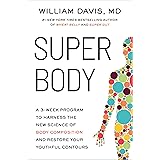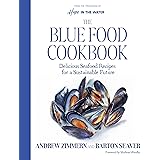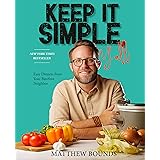Dr. Sebi, a figure synonymous with natural healing and holistic wellness, lived to the remarkable age of 82. In the video above, he touches upon a foundational belief: that there exists a “true diet” for people of African descent, one deeply rooted in their ancestral lands and traditions. This diet, he argued, is not merely about food consumption but about reconnecting with an inherent physiological and spiritual alignment. It challenges conventional notions of nutrition, urging a return to what is native and naturally beneficial.
Dr. Sebi’s philosophy posited that for an African, the optimal diet was provided by nature in Africa itself. He questioned the idea that common staples like rice, beans, potatoes, yams, and especially animal products such as cows, hogs, and lamb, were truly native or beneficial. Instead, he drew parallels with indigenous diets of other ancient cultures, like the Toltec and Olmec, emphasizing a consistent theme: consuming only what is “native” and plant-based.
Understanding the African Bio-Mineral Balance Diet
The core of Dr. Sebi’s teachings revolved around what he called the African Bio-Mineral Balance. This wasn’t just a diet; it was a lifestyle aimed at cellular regeneration and detoxification. The underlying principle is that disease can only thrive in an acidic environment. By consuming an alkaline, plant-based diet, the body’s natural healing mechanisms are optimized. This approach seeks to restore the body to its natural alkaline state, facilitating self-repair and overall vitality.
Many modern ailments, Dr. Sebi suggested, stem from consuming foods that are either acidic or genetically modified (hybridized). These foods, he argued, introduce mucus and inflammation into the body, leading to a cascade of health issues. His emphasis on native foods goes beyond just being plant-based; it specifically targets foods that are naturally occurring and have not been tampered with through human intervention or selective breeding over centuries. This specific focus on the “African diet” is crucial for maintaining an alkaline environment and promoting wellness.
The Distinction Between Native and Non-Native Foods
The concept of “native” foods is central to Dr. Sebi’s dietary recommendations. He asserted that foods like wheat, dairy, and animal products are not natural to the human digestive system, especially for those of African heritage. These items, he believed, contribute to acidity and disease within the body. Instead, the focus shifts to unhybridized, nutrient-dense fruits, vegetables, grains, and nuts that have grown in specific regions for millennia. For example, specific leafy greens like kale or callaloo, or fruits such as soursop and mangoes, are often highlighted for their high mineral content and alkaline properties.
Dr. Sebi often challenged the common belief that certain foods, like milk, are essential for calcium. He argued that plant-based sources provide more bio-available minerals without the adverse effects of dairy. Animal products, including lamb and other meats, were unequivocally off-limits in his diet. This stance is often a point of contention with conventional dietary guidelines, yet for followers of Dr. Sebi, it represents a crucial step towards health. Understanding these distinctions is key to truly embracing Dr. Sebi’s true diet for optimal health.
Key Principles of Dr. Sebi’s Plant-Based Diet
Adopting Dr. Sebi’s African Bio-Mineral Balance means adhering to several fundamental principles. The primary focus is on consuming an abundance of electric, natural, and unprocessed plant foods. This includes a specific list of approved vegetables, fruits, grains, nuts, seeds, and oils. Avoiding all animal products is non-negotiable, as is abstaining from dairy, eggs, and processed foods. The emphasis is on whole, unrefined foods that are rich in essential minerals.
Furthermore, staying hydrated with spring water is paramount for detoxification and nutrient transportation. Dr. Sebi also advocated for avoiding hybridized foods, even if they are plant-based, due to their altered genetic structure. For example, common varieties of corn, which have undergone significant genetic modification, would not be considered suitable. The goal is to nourish the body with foods that our ancestors would have recognized and thrived upon, promoting a return to a truly natural African diet.
Foods to Embrace and Avoid on the Dr. Sebi Diet
Dr. Sebi’s teachings provide a clear framework of what to consume and what to eliminate. This clarity is a major draw for individuals seeking a definitive dietary path. The list of approved foods, often referred to as Dr. Sebi’s Nutritional Guide, is specific and intentionally limited to promote healing and reduce inflammation.
Foods to Embrace:
- Vegetables: Amaranth greens, avocado, bell peppers, bitter melon, chayote, cucumber, dandelion greens, kale, nopales, okra, olives, onions, sea vegetables (arame, dulse, nori), squash, watercress, wild arugula. These are chosen for their high mineral content and alkalinity.
- Fruits: Apples, bananas (Burro and original small), berries (elderberries, raspberries), cantaloupe, dates, figs, grapes (seeded), limes, mangoes, melons (seeded), oranges (sour), papayas, peaches, plums, soursop, tamarind. Seeded fruits are preferred, reflecting their natural state.
- Grains: Amaranth, fonio, kamut, quinoa, rye, spelt, wild rice. These grains are considered ancient and unhybridized.
- Nuts & Seeds: Brazil nuts, hemp seeds, sesame seeds, walnuts, raw tahini. Limited due to their fat content, but valuable in moderation.
- Oils: Avocado oil, coconut oil (virgin), grapeseed oil, hempseed oil, olive oil (virgin), sesame oil.
- Herbal Teas: Ginger, fennel, peppermint, burdock, sarsaparilla.
Foods to Avoid:
- All animal products: Beef, poultry, pork, fish, seafood.
- Dairy products: Milk, cheese, yogurt, butter.
- Eggs.
- Hybridized vegetables: For example, many common potato varieties, carrots, corn.
- Processed foods: Canned goods, refined sugars, artificial sweeteners, white flour.
- Alcohol and tobacco.
This carefully curated list is designed to support the body’s natural healing processes and help maintain an optimal alkaline state. It reinforces the wisdom that Dr. Sebi shared in the video: a dedication to eating only what is “native” and truly beneficial for an African’s health.











